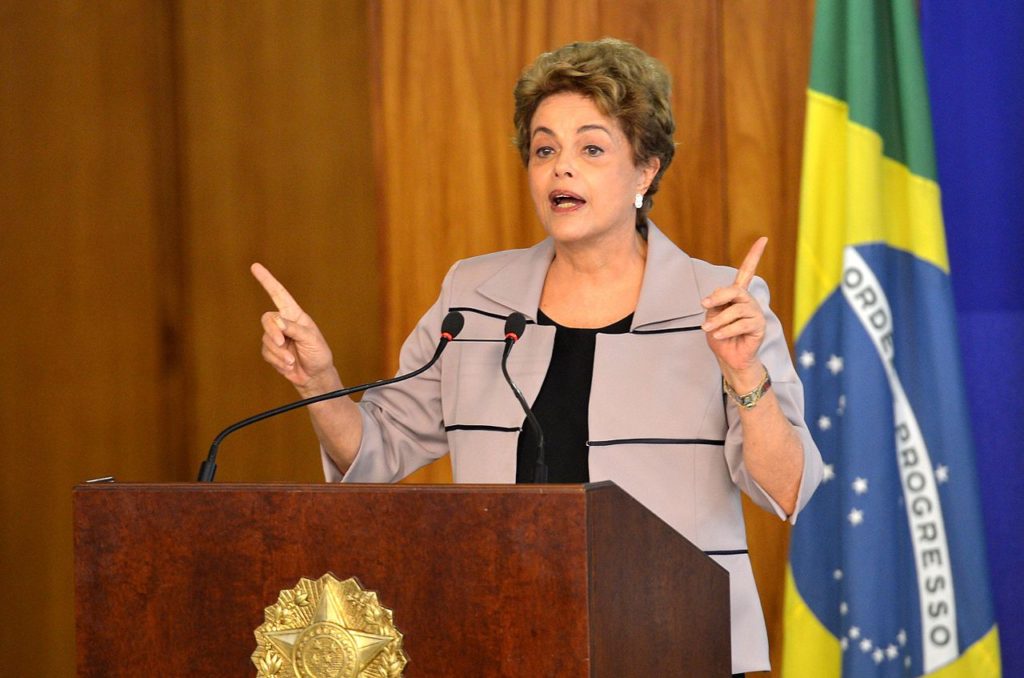Originally published at MintPress News.
AUSTIN, Texas — During a recent appearance at a corporate think tank, Brazilian President Michel Temer admitted that his predecessor, Dilma Rousseff, was impeached because she refused to implement a neoliberal reform plan published by Temer’s party.
Rousseff was formally removed from office on Aug. 31 after the Brazilian senate voted to impeach her for breaking budgetary laws. This allowed Temer to take office despite a court ruling barring him from running for election.
However, Rousseff and other critics of Temer have argued that her impeachment was actually a coup d’etat which set the stage for Temer to take power, backed by a government that’s more favorable to corporate investors.

Appearing Wednesday before an audience in New York at the Americas Society/Council of the Americas, a corporate think tank founded in 1965 by the powerful banker David Rockefeller, Temer appeared to admit that the impeachment had more to do with Rousseff’s refusal to adopt a sweeping package of economic and legal changes proposed by Temer’s Brazilian Democratic Movement Party.
According to a subtitled video of his speech published by The Intercept Brasil, Temer said:
[M]any months ago, while I was still vice president, we released a document named “A Bridge to the Future” because we knew it would be impossible for the government to continue on that course. We suggested that the government should adopt the theses presented in that document called “A Bridge to the Future.” But, as that did not work out, the plan wasn’t adopted and a process was established which culminated with me being installed as president of the republic.
In a report published in Portuguese on Thursday and in English on Friday, The Intercept Brasil’s Ignacio Vieira explained that the “Bridge to the Future” plan included economic reforms typical of neoliberal policy, including “cuts to health and education spending, reduced welfare benefits, a raised retirement age, new private sector partnerships and decreased market regulations.”
Vieira noted that Temer reiterated his commitment to the proposed plan during his speech to the think tank:
The newly installed President listed the multiple benefits and guarantees that his government intends to offer foreign investors. Those benefits including guaranteeing the profit margins of the business leaders who watched him speak while consuming their meals.
In a separate analysis, The Intercept’s founder, Glenn Greenwald, noted that Brazil’s major media had largely ignored Temer’s “confession,” providing further evidence that Brazilian news organizations are controlled by the same corporate interests that backed the alleged coup. He wrote:
Just contemplate that: the installed president of the country admits to a room full of oligarchs and imperialists in New York that he and his party impeached the elected president for ideological and policy reasons, not because of the stated reasons, and the entire big Brazilian press pretends that it never happened, refuses to inform Brazilians about what the installed President admitted, and ignores the huge implications for what this illuminates about Dilma’s removal.
Rousseff’s impeachment continues to provoke protests in Brazil, with protesters marking Temer’s swearing-in as president late last month with protests and road blockades. On Thursday, the country’s unions returned to the streets after declaring a general strike.
Representatives of the unions told teleSUR English: “We need to stop Brazil to give a demonstration of the extent that the people oppose the illegitimate and putschist government.”